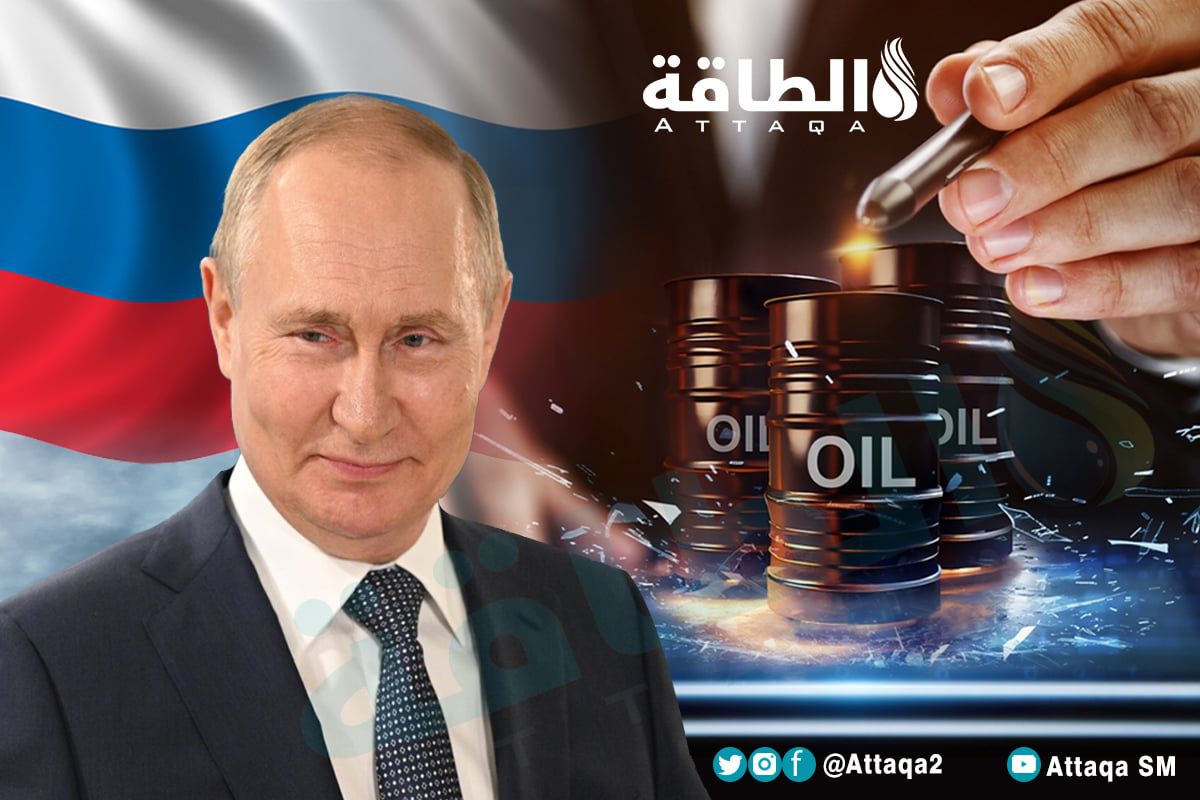Russian oil continues to lure many global markets with its cheap prices, prompting some to circumvent the sanctions imposed on Moscow following its invasion of Ukraine.
In this context, it was noted the increasing demand for oil storage tanks in Singapore and the UAE, indicating that Russian oil is being blended and re-exported globally.
Storage space is being snapped up because of the increased profits from mixing cheap fuel supplies from Russia with shipments from other sources, according to Bloomberg.
Singapore has not banned the import of Russian oil or petroleum products, although financial institutions based in the country are prohibited from financing or dealing with Russian goods and companies.
Russian oil mix
Flows of Russian crude oil and fuel to Asia and the Middle East have increased since Moscow’s war in Ukraine prompted Western buyers to turn away from Russian supplies in response to this aggression, according to information seen by the specialized energy platform.
Such shipments have increasingly made their way to blending and redistribution centers such as Singapore and Fujairah in the UAE, where they can be blended, repackaged and exported globally.
This trend of more shipments from Russia to Asia and the growing role of blending centers in redistribution may intensify in the coming weeks, as Europe prepares to impose new sanctions on Russian oil products on February 5.
Oil market participants are watching closely to see where Russian fuels – such as gasoil, naphtha and fuel oil – will settle. Because many Asian countries do not take a hard line on sanctions.
The following graph – prepared by the Energy Research Unit – shows Russia’s production of oil and liquid fuels from 2019 until 2023:
High cost of storage rent
“We noticed an increase in the number of inquiries related to short-term/spot storage in the run-up to December,” a spokesperson for Advario Asia Pacific said, according to Bloomberg.
He added that the company checks the source of the products, to ensure compliance with Russian sanctions, before accepting them.
Meanwhile, a 6-month lease to store fuel oil or crude oil in Singapore has risen by as much as 17%-20% in costs over the past year (2022), executives from storage facility operators said.
Ship tracking data from Vortexa showed that in December 2022 Singapore oil terminals accounted for more than twice the volume of Russian naphtha and fuel oil compared to the previous year (2021).
Medina received 2.6 million barrels of naphtha, nearly 40 times the volume recorded in the previous year.
High profit margins
William Tan, senior vice president at Singaporean marine fuel consultancy Miyabi Industries, said traders and fuel suppliers are now in the oil storage and blending business because of the “very good” profit margins from such activities.
He stressed that this was due to the availability of very cheap supplies of Russian fuel oil and other products.
This greatly incentivizes the blending of these highly discounted products into a mix that can be resold at a much higher price, thus encouraging traders and fuel suppliers to look for onshore tanks or floating storage offshore.
According to Tan’s estimates, traders can enjoy a profit margin of approximately 20% from blending Russian ingredients with other grades to produce a blended fuel oil product.
He added that this trend has been in effect since October 2022, and is higher than the usual profit, which ranges between 10% and 12%.
However, there is still room to increase margins if sellers cannot find locations to offload their shipments due to further trade restrictions.
Russian oil is needed
In another context, Russian Deputy Prime Minister Alexander Novak confirmed that Russian oil is still needed in the global market, as it is difficult to ensure the global energy balance without it.
He said – in remarks to reporters today, Thursday (January 19) -: “We must mention that the demand for our oil is high. With regard to exports, we have a large market share. As a result, it is difficult to achieve energy balance today without Russian oil.”

Novak also indicated that oil production and exports in January 2023 are still at the level of December 2022, according to what was reported by the TASS agency.
He added that the discount on Russian oil increased due to the fact that buyers are considering potential risks, expecting this discount to decline as the situation stabilizes.
“Of course, we now see that the discount on our oil has increased slightly, which is normal because buyers take risks into account. However, we expect the discount to decrease, given the stabilization of the situation,” he said.

Leave a Reply